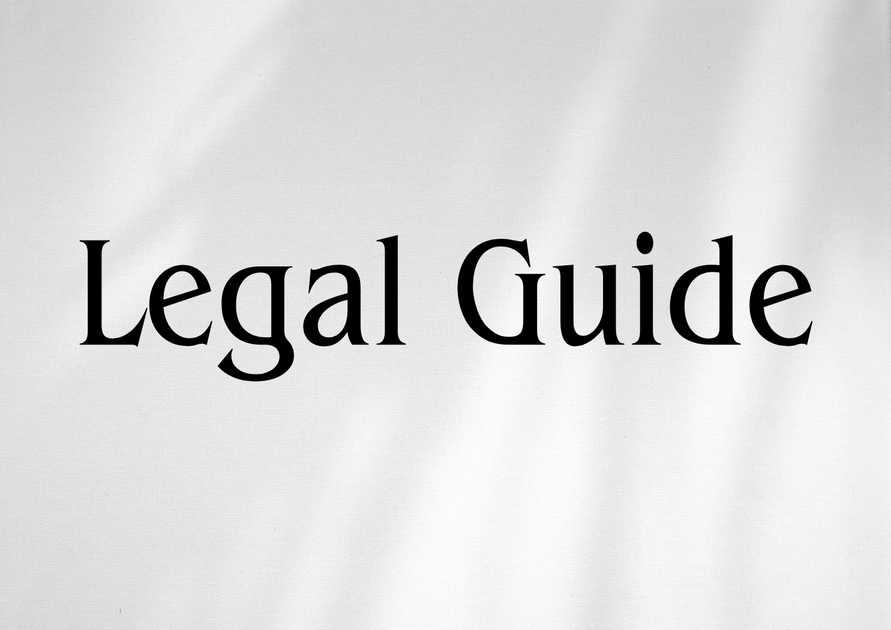Introduction: Arbitration and the Evolving Role of UAE Courts
Arbitration has become a cornerstone of dispute resolution in the United Arab Emirates (UAE), particularly in its commercial landscape. The UAE government’s strategic efforts to align its legal framework with international standards has reinforced arbitration’s position as a trusted, efficient, and business-friendly mechanism for resolving disputes. Notably, the UAE Federal Arbitration Law—Federal Law No. 6 of 2018—together with key federal decrees and recent judicial updates, has redefined how UAE courts interact with, supervise, and support arbitral proceedings, offering enhanced security and clarity for parties engaged in arbitration.
This subject holds marked relevance for UAE-based businesses, regional investors, and global enterprises with operations in the Emirates. Recent legal updates through Federal Decree-Laws issued in late 2023 and early 2024 further accentuate the UAE’s commitment to fostering an arbitration-friendly environment. In a legal landscape where efficiency, enforceability, and legal certainty are paramount, understanding how UAE courts engage with arbitration is essential—not just for legal practitioners, but for executives, contract managers, and in-house counsel aiming to mitigate risks and ensure compliance under UAE law.
This consultancy-grade analysis explores, in-depth, the current legal framework that governs court support for arbitration in the UAE. It details procedural touchpoints, practical guidance for compliance, comparative insight on legal evolution, and strategic recommendations drawn from real-world scenarios and UAE jurisprudence. By the end of this article, readers will possess a sophisticated understanding of both the opportunities and obligations present under current UAE arbitration law.
Table of Contents
- Legal Framework Governing Arbitration in the UAE
- The Role of UAE Courts in Arbitration: An Overview
- Judicial Intervention vs Judicial Support
- Recent Legal Updates: 2023–2025 and Their Impact
- Key Court Support Provisions under Federal Law No 6 of 2018
- Case Studies and Practical Examples
- Risks of Non-Compliance and Effective Compliance Strategies
- Comparative Table: Old vs New Arbitration Law
- Best Practices for Engaging Arbitration in the UAE
- Conclusion: The Future of Arbitration and Court Support in the UAE
Legal Framework Governing Arbitration in the UAE
Federal Law No 6 of 2018 (UAE Arbitration Law)
Federal Law No. 6 of 2018 on Arbitration represents a significant milestone, establishing a comprehensive and modern legal foundation for arbitration in the UAE. Modelled closely after the UNCITRAL Model Law, it aligns local practices with global expectations. It abrogated several articles of the UAE Civil Procedures Law (Federal Law No. 11 of 1992) relating to arbitration and now stands as the central law governing domestic and international arbitrations seated in the UAE.
The law applies to all arbitration seated in the UAE unless parties agree otherwise. Its provisions are binding in both the onshore UAE and in the financial free zones, except where those zones have their own arbitration regulations (e.g. DIFC Arbitration Law).
Key Official Sources and Governing Authorities
- UAE Ministry of Justice: Responsible for judicial appointments and overall supervision of court-related matters.
- Federal Legal Gazette: Official source of legislative texts and amendments.
- Relevant Court Circulars and Ministerial Guidelines: Detailing procedural requirements and best practices, particularly for arbitration-related applications.
The Role of UAE Courts in Arbitration: An Overview
While arbitration is fundamentally a private dispute resolution mechanism, there are critical junctures where the UAE courts play a supporting and supervisory role—balancing respect for party autonomy with the need for procedural integrity and the enforceability of awards.
Principal Functions of the UAE Courts in Arbitration
- Appointing arbitrators if the parties (or arbitral institutions) cannot agree
- Deciding on challenges to arbitrators
- Providing interim relief and provisional measures
- Assisting in the collection of evidence
- Recognizing and enforcing arbitral awards within the UAE
- Annulment (setting aside) arbitration awards in specific circumstances
- Ensuring due process and compliance with public policy
This engagement is designed to enhance the efficiency and reliability of arbitration proceedings, thereby promoting the UAE as a pro-arbitration jurisdiction, in line with international best practices.
Judicial Intervention vs Judicial Support: Scope and Limitations
Permitted Judicial Assistance
The UAE Arbitration Law strictly confines the circumstances under which courts may intervene during arbitration:
- Article 4: Courts shall not intervene in arbitration matters except as set out in the Law.
- Articles 10–15: Court assistance is provided for appointing or removing arbitrators when needed.
- Articles 18–21: Courts may issue preliminary orders or grant interim relief to preserve assets or evidence.
- Article 36: Courts facilitate the enforcement of arbitral awards as judgments.
These provisions ensure that court involvement supports, rather than supplants, the autonomy of arbitral proceedings.
Prohibited Judicial Interference
The Law also sets clear boundaries against unwarranted court interventions. For example, merits of the dispute are not open to judicial review unless raised under specific annulment grounds as per Article 53. This legal certainty is essential for the predictability of outcomes.
Recent Legal Updates: 2023–2025 and Their Impact
Several Federal Decrees and Ministerial Decisions issued in late 2023 and throughout 2024 bolster court support for arbitration and clarify procedural mechanisms. Some notable developments include:
- Federal Decree-Law No. 15 of 2023: Introduced refined timelines for court assistance in arbitrator appointments and enforcement procedures.
- Ministerial Circular No. 4 of 2024 (Ministry of Justice): Established unified electronic filing portals for arbitration-related applications, improving procedural efficiency.
- Cabinet Resolution No. 32 of 2023: Provided new guidelines for the expedited consideration of urgent applications for interim measures by the courts.
These changes underline the UAE’s continued modernization and present new compliance obligations and opportunities for businesses relying on arbitration.
Visual Suggestion: Compliance Checklist Table
| Requirement | Old Regime | Current Regime (2024) |
|---|---|---|
| Arbitrator Appointment by Court | Varied timelines, paper-based submission | 10-day timeline, online portal mandated |
| Interim Measures | No clear standard on urgency | Defined as 48 hours for urgent applications |
| Award Enforcement | Multi-stage, delays common | One-step process, priority docket for arbitration enforcement |
Key Court Support Provisions under Federal Law No 6 of 2018
1. Appointment, Removal, and Challenge of Arbitrators
When parties cannot agree on the identity or qualifications of arbitrators, or an arbitral institution is not named or able to act, the competent UAE court (usually the local Court of Appeal in the seat of arbitration) steps in. Under Articles 11–15, the court must act swiftly, with a deadline of 10 days for the appointment of an arbitrator, as enforced in recent judicial practice (following Decree-Law No. 15 of 2023).
Practical Insight: Parties should draft arbitration agreements with clear, detailed appointment procedures to minimize judicial involvement, but can rely on the courts for a timely resolution if impasse arises.
2. Interim Measures and Protective Relief
Articles 18–21 empower courts to grant urgent protective measures before or during arbitration. Such measures may include freezing assets, preserving evidence, or restricting actions that may prejudice the arbitral proceedings. The new Cabinet Resolution No. 32 of 2023 requires these applications to be processed within defined timeframes, now as fast as 48 hours in urgent cases.
Example Scenario: An employer concerned that a former partner may dissipate funds during ongoing arbitration can apply for a court-ordered asset freeze pending completion of proceedings.
Practical Insight: Parties should always consider including explicit references to interim relief mechanisms in contracts and instruct legal counsel to act promptly when urgency arises.
3. Support in Evidence Gathering
Arbitral tribunals have some power to gather evidence, but often require court support, especially to compel third parties or secure witness testimony. Courts may order the production of documents, administer oaths, and even impose penalties for non-compliance with evidence orders as per Article 36.
Practical Insight: For cross-border deals, parties should verify whether courts can compel evidence production from non-UAE-based witnesses or entities, as local jurisdictional limits may apply.
4. Recognition and Enforcement of Arbitral Awards
This is where UAE courts play a definitive role. Article 55 mandates that an application to enforce an arbitral award must be submitted to the competent court within 60 days of issuance. The court is required to render a decision “without delay” after verifying the absence of annulment grounds. Recent reforms (Ministerial Circular No. 4 of 2024) prioritize arbitration award enforcement before other civil enforcement applications.
Case Study: In Abu Dhabi Investment v. XYZ LLC (2023), the Abu Dhabi Court of Cassation enforced a USD 50 million ICC arbitration award within 15 days under the new fast-track process—demonstrating increased efficiency.
5. Annulment (Setting Aside) of Awards
The UAE courts’ power to annul an arbitral award is strictly limited to grounds specified in Article 53, including procedural irregularities, excess of authority, invalidity of the arbitration agreement, or breach of due process/public policy. Notably, a party seeking annulment must file within 30 days of notification of the award.
Practical Insight: Annulment is the exception, not the rule, under UAE law. Businesses should focus on adhering to statutory requirements during proceedings to mitigate risks of enforcement challenges.
Case Studies and Practical Examples
Hypothetical Scenario: Construction Sector Dispute
A Dubai-based contractor and an Abu Dhabi developer include an arbitration clause in their contract but do not specify an arbitral institution. When a dispute arises, they cannot agree on the arbitrator. The contractor approaches the Dubai Court of Appeal under Article 11, which appoints an arbitrator within the statutory 10 days. The proceedings continue seamlessly without prolonged delay.
Real-World Example: Interim Relief for International Investors
An international investor suspects a JV partner is transferring assets abroad to frustrate an anticipated arbitration award. Prior to filing a formal arbitration claim, the investor obtains a precautionary order from the Abu Dhabi courts under Article 18, freezing the assets within 48 hours. This action preserves the efficacy of subsequent arbitration.
Learning from Practice: Setting Aside Proceedings
In 2022, the Dubai Court of Cassation set aside an award where an arbitrator had failed to disclose a material conflict of interest. The court’s intervention was limited to procedural fairness and reinforcing the need for transparency and disclosure in arbitrator selection as per Article 53(d).
Risks of Non-Compliance and Effective Compliance Strategies
Key Risks for Businesses
- Delay in Enforcement: Missing statutory deadlines for enforcement applications can result in rights being lost.
- Procedural Challenges: Poorly drafted arbitration agreements can cause costly jurisdictional disputes or necessitate court involvement.
- Excessive Judicial Review: Failure to adhere to proper procedures may expose an award to annulment risk.
- Loss of Interim Relief: Not acting promptly can forfeit critical opportunities for court-ordered asset or evidence protection.
Compliance Checklist Table
| Compliance Step | Preventive Action |
|---|---|
| Drafting Arbitration Agreements | Specify seat, institution, rules, and language. Seek legal review. |
| Commencing Arbitration | File requests promptly with full supporting documents. |
| Engagement with UAE Courts | Use e-filing portals. Respect deadlines for challenges and enforcement. |
| Evidence and Interim Relief | Prepare detailed applications, act swiftly for urgent interim measures. |
Comparative Table: Old vs. New UAE Arbitration Laws
| Aspect | Pre-2018 (Civil Procedures Law) | 2018 Arbitration Law & Recent Updates |
|---|---|---|
| Court Intervention | Frequent, sometimes ambiguous powers | Strictly limited to defined circumstances under Art. 4 & 53 |
| Enforcement Procedures | Lengthy, multi-stage enforcement; risk of delays | Fast-track, one-stop applications; priority dockets for arbitration |
| Appointment of Arbitrators | Unclear timelines, appointment could take months | Clear deadlines (10 days), use of online portals mandated |
| Interim Relief | No express legal standard for urgency | Expedited by statute (48 hours in urgent cases) |
| Public Policy | Broad judicial discretion | Clear statutory grounds, international standards aligned |
Best Practices for Engaging Arbitration in the UAE
Drafting to Avoid Judicial Pitfalls
- Appoint arbitral institutions with recognized credentials in contracts
- Clarify seat, language, method for appointing arbitrators, and applicable substantive law
- Provide for interim relief procedures where necessary
Building Timely and Effective Applications
- Utilize the Ministry of Justice’s unified e-filing platforms and follow official guidance on required documentation
- Engage specialized legal counsel familiar with arbitration practice and recent legal updates
- Monitor statutory deadlines rigorously
Ensuring Award Enforceability
- Adhere strictly to the Arbitration Law’s procedural rules during arbitral proceedings
- Pre-empt jurisdictional challenges and address conflicts of interest among arbitrators proactively
Visual Suggestion: Arbitration Process Flow Diagram
Recommended diagram showing stages: Agreement – Commencement – Tribunal Formation – Hearings – Award – Court Enforcement/Support
Conclusion: The Future of Arbitration and Court Support in the UAE
The UAE courts’ approach to arbitration has graduated from a regime of inconsistent intervention to one of firm but focused support, rooted in statutory certainty and harmonized with international standards. With the adoption of Federal Law No. 6 of 2018 and a series of targeted legislative and procedural upgrades in 2023 and beyond, court support in arbitration has never been more robust or predictable.
For businesses and legal teams, this offers tangible benefits—expedited enforcement, sharply reduced procedural backlogs, and greater confidence in dispute outcomes. However, to harness these advantages, organizations must ensure that contracts, procedures, and operational protocols are tuned to statutory requirements and informed by the latest judicial guidance.
Looking forward, the UAE’s drive to cement its position as a hub for international dispute resolution will likely continue, with further digitalization, continued procedural streamlining, and close alignment with best global practice. Proactive compliance, legal foresight, and the strategic use of court support mechanisms will be key to thriving in this evolving legal landscape.



